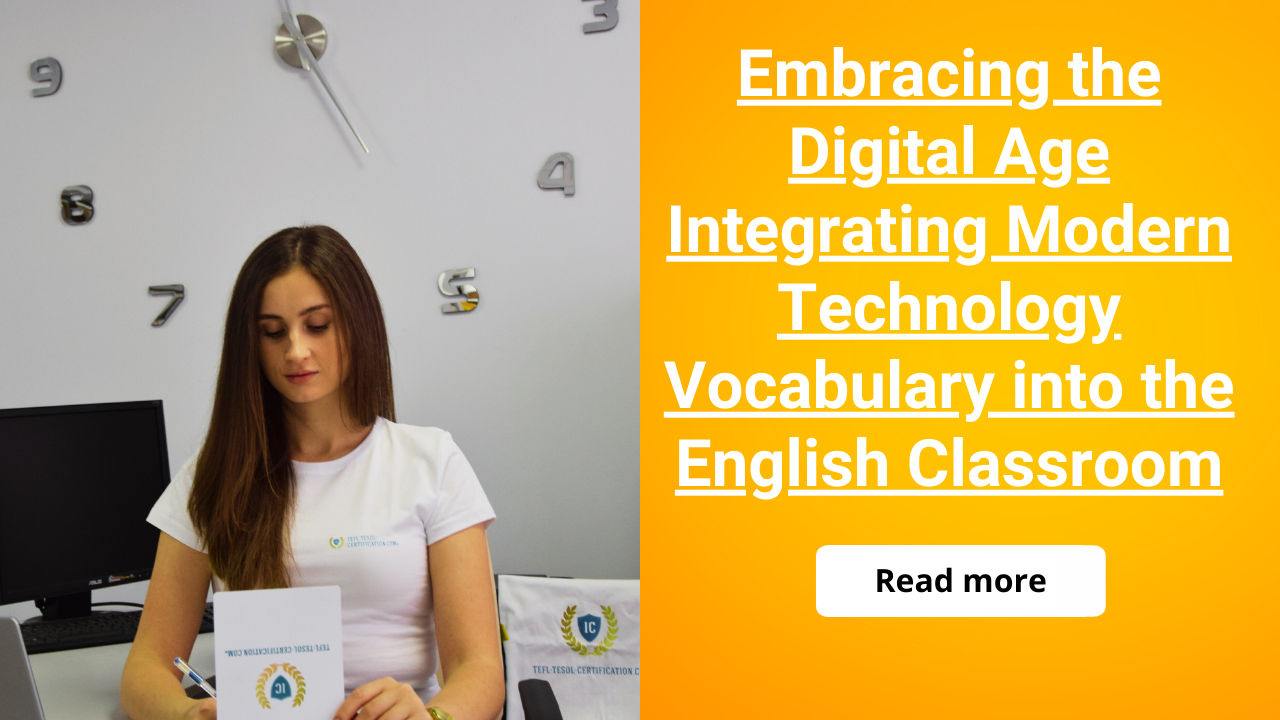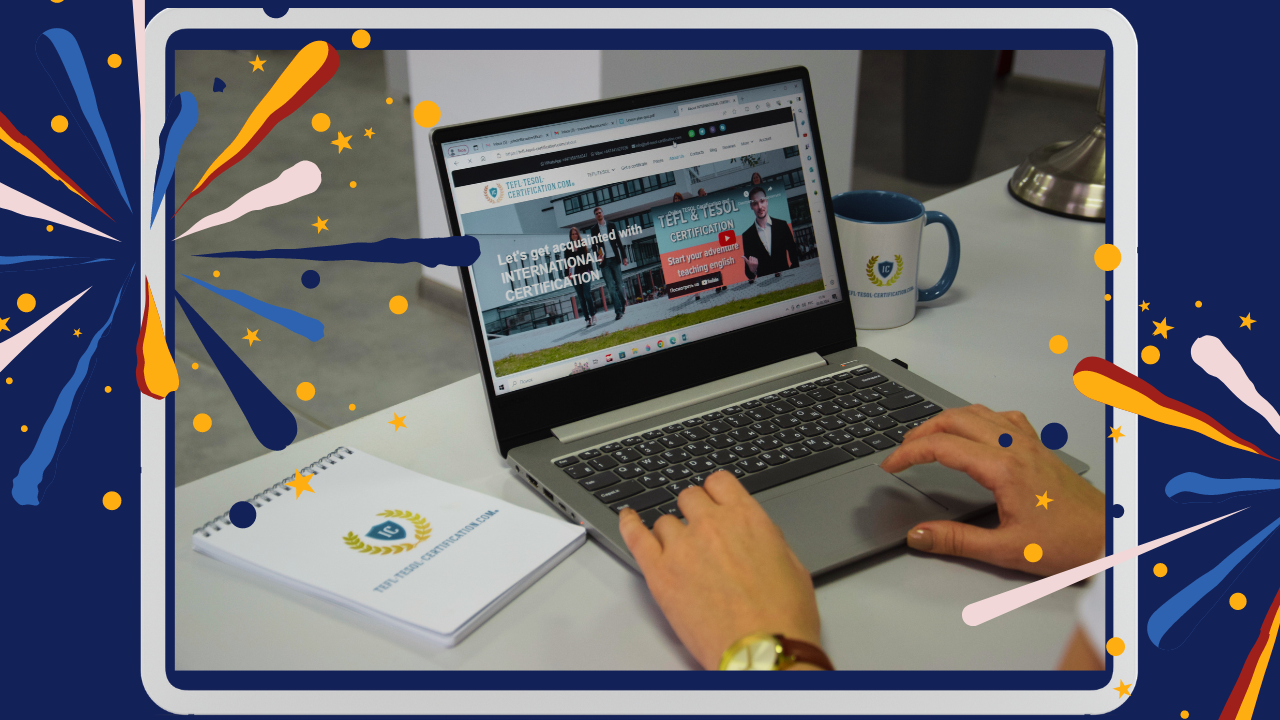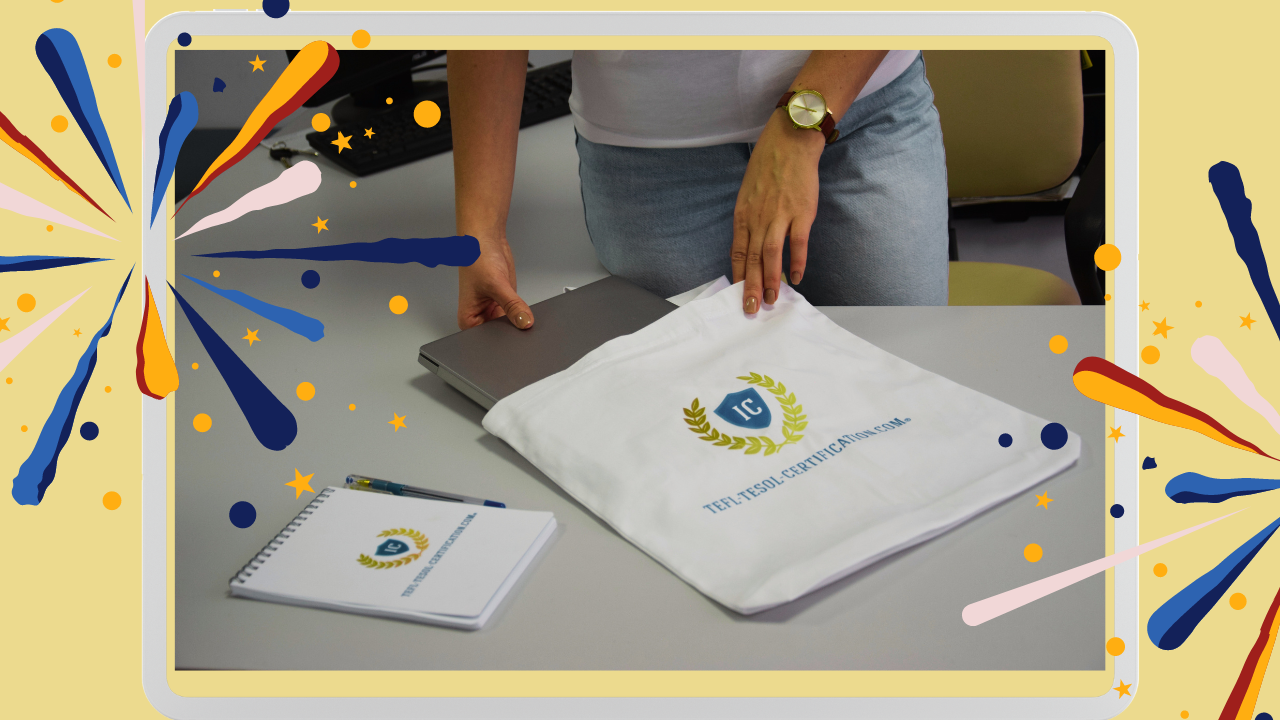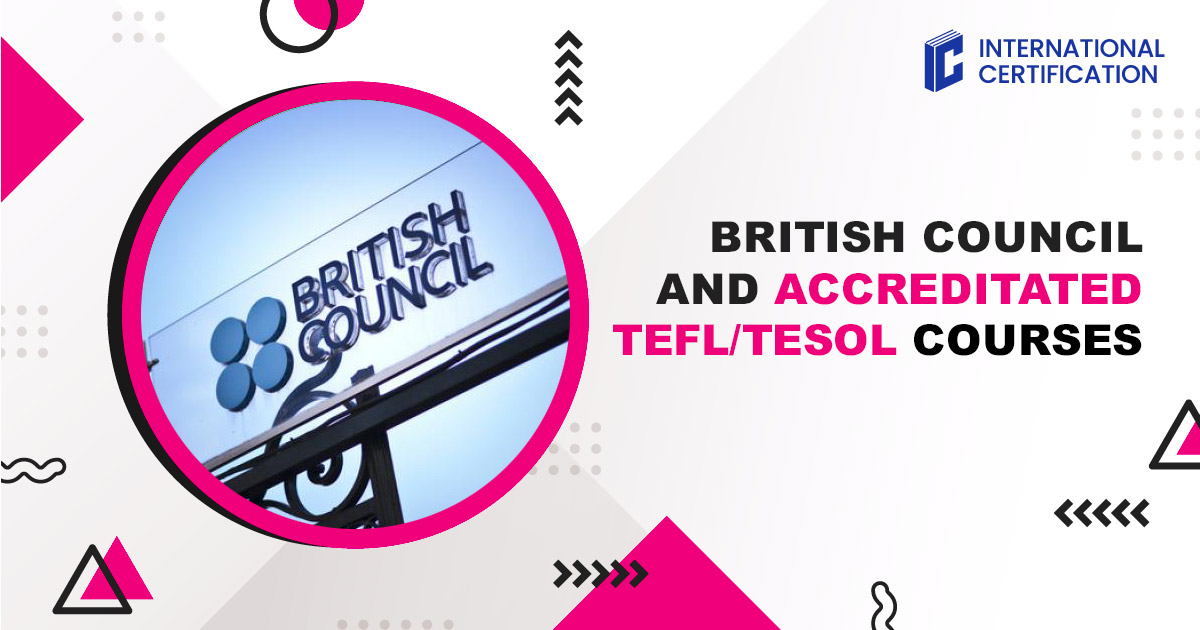And start earning money 💸 by teaching English in your own country, abroad, or online from anywhere on the planet! 🎁 Gifts and bonuses: professional support from your personal coach 🧑🏫 and job placement assistant 💼.

Embracing the Digital Age Integrating Modern Technology Vocabulary into the English Classroom
Table of contents
In the rapidly expanding digital era, the English language continues to absorb and adapt to new technological terms and concepts at an unprecedented pace. For educators, this dynamic landscape presents both a challenge and an opportunity to enrich their teaching practices and curricula. As technology increasingly permeates every aspect of our lives, from how we communicate and work to how we learn and play, the importance of incorporating modern technology vocabulary into English language teaching cannot be overstated.
For English teachers, staying abreast of these developments is not just about expanding a vocabulary list; it's about preparing students to engage confidently and competently in conversations about the digital world. It involves creating learning experiences that are not only relevant but also reflective of the technological advancements shaping our society. By integrating contemporary technological terms and concepts into lesson plans, teachers can provide learners with the linguistic tools needed to navigate and contribute to discussions on digital innovations.
This article proposes a comprehensive lesson plan tailored for B2 learners, designed to fuse traditional language learning objectives with an exploration of modern technologies. The plan aims to foster a classroom environment where students are not only learning English but are also gaining insights into the digital age. Through a blend of vocabulary expansion, engaging discussions, multimedia resources, and creative role-playing, this lesson plan is a step towards equipping learners with the English language skills relevant for today's tech-driven world.
Join us as we delve into the specifics of this lesson plan, offering English teachers a roadmap to integrate modern technology vocabulary into their teaching repertoire effectively. Together, we can ensure that language education remains relevant and responsive to the needs of learners navigating the complexities of the 21st century.
Warm-up
Just as athletes wouldn't even think of starting a race without a proper warm-up to awaken their muscles and boost their performance, language learners too benefit immensely from engaging in warm-up activities at the beginning of each lesson. These initial exercises serve as the crucial first steps on the path to effective learning, priming the mind for the influx of new information and the rigors of linguistic exploration.
Warm-up activities in the language classroom play a pivotal role in setting the tone for the session, facilitating a transition into the learning environment, and sparking curiosity and engagement among students. By starting with thought-provoking, interactive exercises, we create a fertile ground for language acquisition, making the brain more receptive to new vocabulary, concepts, and patterns.
In the context of our lesson on technology, the warm-up acts as a bridge, connecting students' daily experiences with the technological vocabulary and concepts they will explore. It encourages them to draw on their prior knowledge and experiences, fostering a sense of relevance and personal connection to the lesson ahead. Moreover, warm-up activities bolster students' confidence, encouraging participation and collaboration from the outset and setting a positive, dynamic tone for the rest of the class.
Remember, never overlook the importance of warm-up activities. They are as crucial to the success of a language lesson as they are to an athlete's performance. They not only prepare the mind for learning but also illuminate the path towards meaningful, engaged, and effective language acquisition. Let's dive into our technology-themed lesson with an energizing warm-up that will get our students thinking, talking, and ready to tackle the digital world in English.
Here's a list of 10 warm-up questions tailored for a B2 English lesson focused on technology. These questions are designed to engage students, spark their interest in the topic, and activate their prior knowledge, setting the stage for a fruitful class discussion.

- What technological device could you not live without, and why?
- How has technology changed the way we communicate?
- Can you name a piece of technology that has significantly impacted education? How?
- What do you think are the biggest risks of using technology?
- How do you think technology will change in the next 10 years?
- What's your opinion on the use of artificial intelligence in everyday life?
- Do you use any form of wearable technology? If so, what does it do?
- Have you ever used virtual reality? Describe the experience.
- What are your thoughts on cryptocurrencies? Would you use them?
- Can technology solve major world problems? Give an example.
These questions not only serve as an icebreaker but also encourage students to use specific technological vocabulary, share personal experiences, and express opinions, all of which are key components of language learning at the B2 level.
Vocabulary Introduction Through Games
Introducing vocabulary through games, such as Hangman or its culturally sensitive alternative, Snowman, offers a myriad of benefits for language learners. This approach to vocabulary learning is not only engaging and enjoyable but also reinforces memory retention and fosters a deeper understanding of new words. Here’s why integrating vocabulary games into your teaching strategy can be exceptionally beneficial:
Engagement and Motivation:
Games naturally increase student engagement. The competitive element and the challenge of guessing letters to reveal words keep students motivated and focused. This heightened engagement ensures that students are more likely to participate actively, making the vocabulary learning process both effective and fun.
Contextual Learning:
Games like Hangman or Snowman can be adapted to provide context for new vocabulary words. For instance, before starting the game, the teacher can give a sentence or a situation where the word might be used, without revealing the word itself. This context helps students understand not just the meaning but also the practical usage of the word, enhancing their ability to incorporate it into their own vocabulary.
Memory Retention:
The process of guessing letters to form words involves active thinking and problem-solving, which can lead to better memory retention. When students engage directly with the vocabulary in a playful manner, they are more likely to remember the words and their meanings. The repetitive nature of guessing letters also reinforces the spelling of new vocabulary, an important aspect for language learners.
Team Building and Cooperation:
Playing vocabulary games in groups or pairs encourages teamwork and cooperation among students. It fosters a supportive learning environment where students feel comfortable taking risks, asking questions, and learning from mistakes. This collaboration not only enhances language learning but also helps build a positive classroom community.
Stress Reduction:
Learning a new language can be stressful for many students, particularly at the intermediate level where the complexity of the language increases. Introducing vocabulary through games can help reduce anxiety and make students more comfortable. The playful nature of games creates a relaxed learning atmosphere where students are more inclined to express themselves and take part in the lesson.
Adaptability:
Games like Hangman or Snowman are highly adaptable to any vocabulary theme, including technology, making them a perfect fit for our lesson plan. They can be easily modified to suit different learning objectives, class sizes, and time constraints, providing a flexible tool in the language teacher’s arsenal.
Incorporating vocabulary games into your lesson plan enriches the learning experience. It makes the introduction of new terms more effective and memorable, setting the stage for a productive exploration of technology-related vocabulary. Through such interactive activities, students not only expand their lexical repertoire but also develop a positive attitude towards learning English in a technological context.
Vocabulary for the game (20 Words):
- Artificial Intelligence (AI)
- Blockchain
- Cryptocurrency
- Augmented Reality (AR)
- Virtual Reality (VR)
- Internet of Things (IoT)
- Machine Learning
- Automation
- Cybersecurity
- Big Data
- Cloud Computing
- Quantum Computing
- Algorithm
- Data Mining
- E-commerce
- Smart Home
- Wearable Technology
- Biometrics
- Renewable Energy
- 3D Printing
Video Comprehension
Watch the video “How Life Will Look Like In 2050”
Discussing a video about "How Life Will Look Like In 2050" can be a fantastic way to engage students in thought-provoking discussions about the future, especially in the context of a lesson focused on technology. This topic naturally lends itself to the use of future tenses in English, making it an ideal content choice for lessons aiming to teach or revise future tense structures. Below are some questions designed to facilitate discussion about the video and encourage the use of future tenses:
What are some of the technological advancements mentioned in the video that you find most fascinating? Why?
How do you think daily life will be different in 2050 compared to today? Use future tenses to describe your vision.
The video mentions advancements in transportation. How will these changes affect how we travel in 2050?
Discuss the potential impact of future technologies on the environment. Do you think technology will solve current environmental issues?
The role of artificial intelligence in 2050 was highlighted. How do you imagine AI will influence our workplaces and homes?
What are some of the challenges or ethical issues that might arise with the advancements in technology?
How will education and learning evolve by 2050, according to the video? Do you agree with these predictions?
Choose one aspect of future life from the video. How do you feel about this prediction? Are you optimistic or concerned?
The video may discuss health and medicine advancements. How will these improvements change our life expectancy or quality of life?
After watching the video, what skills do you think will be important for the future? How can we prepare for this future?
💡 Unlock the secrets to doubling your teaching income with our exclusive checklist! 🎯 This checklist is designed for English teachers who want to 📈 attract more students and 🔥 keep them engaged for the long term.
Reading and Discussion
Students read NBC News article “An AI glossary: the words and terms to know about the booming industry. The quickly growing field of AI has created a long list of technical terms you should know before endeavoring on your learning journey.”
Provide students with some questions to check their comprehension.
Here are 10 questions that could help check students' comprehension after reading. These questions are designed to cover various aspects of the article, from understanding specific terms to grasping broader concepts and implications:
- What is AI and why is it considered a booming industry?
- Describe what ChatGPT is and how it relates to AI.
- Explain the term "machine learning" and how it is important in the context of AI development.
- What does the article say about "natural language processing" (NLP)?
- Identify and explain two ethical concerns mentioned in the article regarding the use of AI.
- How does the article differentiate between "artificial general intelligence" (AGI) and the current state of AI?
- What role do "neural networks" play in AI, according to the article?
- Summarize the significance of "deep learning" in advancing AI technologies.
- According to the article, what are some potential applications of AI that could affect everyday life?
- Reflect on the article's viewpoint on the future of AI. What developments or challenges does it anticipate?
These questions not only assess students' understanding of the article's content but also encourage them to engage critically with the material, reflect on the ethical implications of AI, and consider its future impact on society.
Role-play
- In pairs, students role-play a scenario where one is a tech entrepreneur pitching a new technology to a potential investor (the other student). Then students switch the roles.
- Encourage the use of vocabulary words and creative ideas.
- Monitor the process, provide individual help.
Wrap-up
The wrap-up phase of a lesson is not merely a conclusion but a crucial checkpoint that aligns with and reflects upon the objectives set at the beginning of the session. This final segment serves multiple essential purposes: it reinforces learning, ensures that the lesson’s goals have been met, and assesses the overall understanding of each student. Effective wrap-up strategies can solidify the day's learning and provide both the teacher and the students with clear insights into their progress and any areas that may need further attention.
Connection to Objectives
When planning a lesson, each activity should be designed with the end goals in mind. The wrap-up is the moment to revisit these objectives, making explicit links between what was intended to be learned and what was actually achieved. This reflection helps students to consolidate their understanding and appreciate the practical applications of their new knowledge.
Checking Overall Understanding
To gauge students’ comprehension effectively and efficiently, consider integrating these techniques into your wrap-up:
Exit Tickets: Ask students to write a quick response to a question related to the day's lesson on a small piece of paper before they leave. This can be a summary of what they learned, a new term they found interesting, or an area they found challenging.
One-Minute Paper: Similar to exit tickets, but ask students to spend one minute writing about the most significant thing they learned during the class or any questions that remain. This gives a snapshot of their understanding and identifies any common misconceptions.
Thumbs Up/Down: A quick and visual way to assess students' confidence in their understanding. Ask a series of yes/no or agree/disagree questions related to the lesson objectives, and students respond with a thumbs up (understood), thumbs sideways (somewhat understood), or thumbs down (did not understand).
Two Stars and a Wish: Encourage students to write down two things they learned and liked (stars) and one aspect they wish to understand better or explore further (wish). This feedback can guide future lessons and revisions.
Quick Quiz: A brief, informal quiz with questions covering the main points of the lesson can provide immediate feedback on student understanding. This can be done verbally for instant feedback or through a written quiz for more detailed assessment.
Group Summary: Divide students into small groups and ask each group to summarize a different part of the lesson or discuss how the lesson’s content could be applied in real-world scenarios. This encourages collaborative learning and allows you to assess comprehension and the ability to apply knowledge practically.
Question Round: Have students form a circle and ask a question related to the lesson’s objectives. Each student contributes an answer or passes if unsure. This encourages active participation and allows you to quickly identify areas that may need more clarification.
By carefully selecting and implementing these wrap-up techniques, teachers can ensure that the closure of each lesson not only revisits and reinforces the lesson's objectives but also provides valuable insights into student learning outcomes. This approach enhances the effectiveness of the teaching process, ensuring that both teaching and learning are aligned with the desired educational goals.

Homework
Assigning writing tasks as homework instead of allocating class time for these activities offers several benefits, especially in language learning environments focused on developing a comprehensive set of skills. One of the key advantages is the maximization of class time for speaking practice, which is essential for enhancing verbal communication skills, confidence, and fluency. Here’s why giving writing tasks as homework is beneficial, followed by 10 essay topics that tie into the technology theme of the lesson plan.
Benefits of Writing Tasks as Homework:
Increased Speaking Time: Allocating writing tasks to homework allows for more in-class time dedicated to speaking practice, enabling students to engage in debates, discussions, and interactive activities that improve their oral skills.
Thoughtful Composition: Writing requires reflection, research, and organization of thoughts, which can be more effectively accomplished outside the classroom, where students can take their time and use resources freely.
Individual Learning Pace: Homework assignments accommodate individual learning paces, allowing students to work through the writing process at a speed that suits them, without the pressure of limited class time.
Enhanced Feedback Quality: Teachers can provide more detailed and thoughtful feedback on written homework, compared to the brief comments possible in a busy classroom setting.
Skill Reinforcement: Writing homework reinforces language structures and vocabulary learned in class, providing a practical application for new concepts.
Promotes Self-discipline: Completing writing assignments independently fosters self-discipline, time management, and responsibility in students.
Customization and Choice: Teachers can offer a range of topics for essays, allowing students to choose subjects that interest them, thereby increasing motivation and engagement.
Incorporates Technology: Writing tasks can incorporate research and the use of digital tools, aligning with the technological focus of the lesson and promoting digital literacy.
Critical Thinking Development: The process of writing essays encourages critical thinking, as students must analyze information, form arguments, and present their ideas coherently.
Opportunity for Peer Review: Assignments can be structured to include a peer review stage, further enhancing analytical skills and providing additional feedback from a diverse audience.
🚀 More students, 💰 higher income, 🌍 complete freedom! ✅ 112 verified platforms with top rates ⏳ Flexible schedule – work whenever and as much as you want 🎯 Simple requirements – start earning right away 💎 Boost your career and income by teaching students worldwide!
10 Essay Topics for Homework:
- The Future of Work: How AI and Automation Will Shape Careers.
- Ethical Considerations in the Development and Use of AI.
- Virtual Reality in Education: A New Horizon for Learning.
- The Impact of Social Media on Human Communication.
- Cryptocurrency: A Revolution in Financial Systems or a Passing Trend?
- The Role of Big Data in Personalized Marketing Strategies.
- Cybersecurity in the Digital Age: Protecting Personal Information.
- The Environmental Impact of Tech Industry Practices on Renewable Energy Usage.
- How Wearable Technology is Transforming Healthcare.
- The Influence of Technology on Art and Creativity.
These essay topics not only reinforce the vocabulary and concepts introduced in class but also encourage students to explore the implications of technology in various aspects of life, fostering a deeper understanding and critical analysis of the digital world.
Get TEFL & TESOL Certified.
Integrating the cutting-edge topic of technologies into English language teaching, as illustrated in our technology-themed lesson plan, underscores the necessity for educators to continuously evolve and adapt to the changing landscape of language learning. This dynamic approach to teaching, which embraces current topics and incorporates modern pedagogical techniques, highlights the broader principle of lifelong learning within the teaching profession. Just as the lesson plan encourages students to engage with contemporary issues and vocabulary, teachers too must commit to their own professional development to stay relevant and effective in their teaching practices.
Obtaining a TEFL or TESOL certification embodies this commitment to continuous learning and professional growth. It equips teachers not only with foundational skills and methodologies but also with the flexibility to incorporate a wide range of topics, like technologies, into their curriculums. Furthermore, these certifications often offer insights into leveraging digital tools and platforms for language teaching, making them especially relevant for educators looking to enrich their lessons with technology-focused content.
In a world where technological advancements are rapidly transforming how we communicate, work, and learn, English teachers need to ensure their teaching methods and content remain up-to-date. This includes not only staying informed about the latest technological trends but also understanding how these advancements can be integrated into language learning to make lessons more engaging, relevant, and effective.
Moreover, many TEFL and TESOL programs now include modules on using technology in the classroom, covering everything from digital resources and online learning platforms to social media and mobile apps for language learning. This training ensures that teachers are not only Procient in traditional teaching methodologies but are also adept at integrating technology into their teaching strategies, thus enhancing the learning experience for their students.
In conclusion, just as our lesson plan on technologies aims to prepare students for the digital age, pursuing a TEFL or TESOL certification prepares teachers to meet the evolving needs of language learners. It represents a step towards embracing the future of education, where technology plays a central role. For English teachers aspiring to excel in their field and remain at the forefront of pedagogical innovation, considering TEFL or TESOL certification is a wise and forward-thinking choice. This commitment to continuous learning and adaptation not only benefits their professional development but also significantly enriches their students' learning experiences.
Terms used:
TEFL, TESOL

York Fern
An English instructor with 12+ years of experience. I work for an online school and travel the world, teaching students from various countries, leveraging my TEFL/TESOL certification. Seeing the world's oceans, mountains, and cities with my own eyes has given me a profound appreciation for the importance of quality education and international communication.
and start earning by teaching English in your country, abroad, or online from anywhere in the world! Order the course with a 50% discount 💸 and receive as a gift the support of a personal coach 👨🏫 and job placement assistant! 🎁🚀 Hurry, limited spots available! 🏃♂️💨
💡 Unlock the secrets to doubling your teaching income with our exclusive checklist! 🎯 This checklist is designed for English teachers who want to 📈 attract more students and 🔥 keep them engaged for the long term.
🚀 More students, 💰 higher income, 🌍 complete freedom! ✅ 112 verified platforms with top rates ⏳ Flexible schedule – work whenever and as much as you want 🎯 Simple requirements – start earning right away 💎 Boost your career and income by teaching students worldwide!
choose us?



